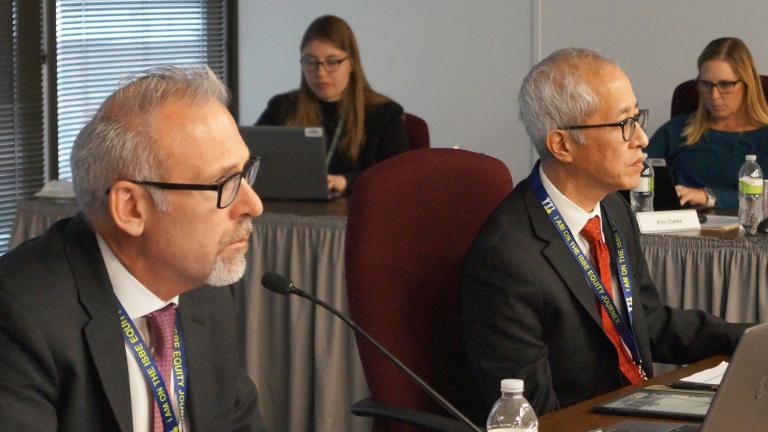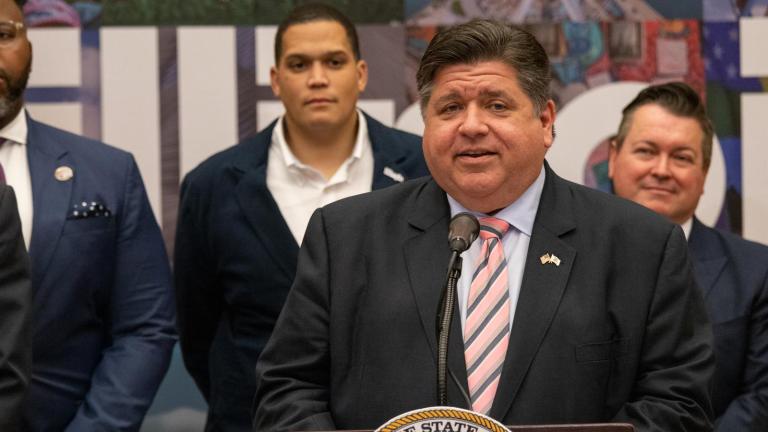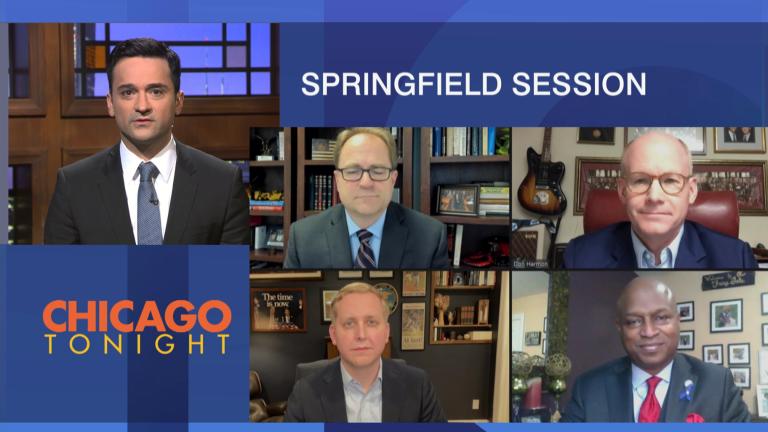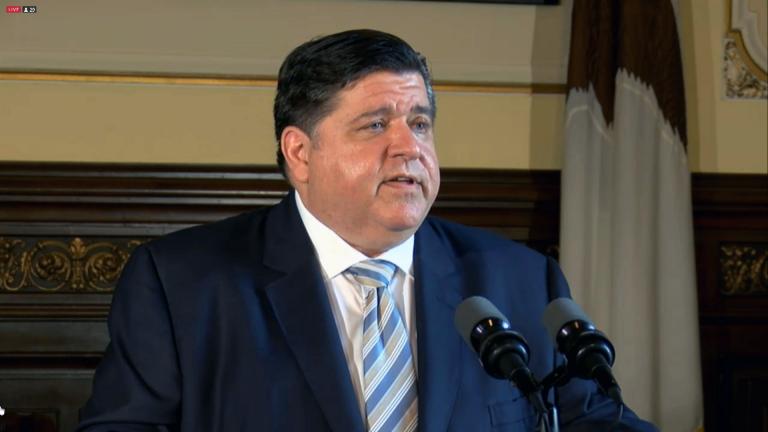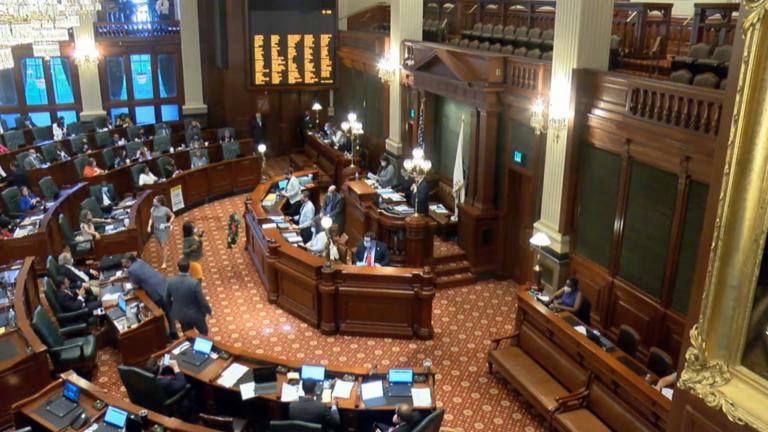With only two more days before the Illinois legislature’s end-of-month budget deadline, a bipartisan deal is teed up to pass a $38-plus billion spending plan on time—a far cry from the political brinkmanship that kept Illinois without a budget for 736 days.
Voting is set to begin Wednesday on an agreement that covers supplemental funding for the current fiscal year, the new fiscal year that begins in July and at least some infrastructure, or capital, spending.
The pending deal for spending in fiscal year 2019 will closely mirror this year’s budget, which relies on $5 billion in revenue from an income tax increase approved last July.
It will also boost spending on education—with hundreds of millions of dollars more for kindergarten through high school classrooms, via the second phase of a new school-funding formula approved last year aimed at bringing poorer districts to adequate funding while also giving the property tax relief to areas where the burden is particularly high.
Lawmakers will try to boost enrollment at Illinois’ public universities via a new program (Senate Bill 2927) on the fast track that would create a merit-based “AIM HIGH” scholarship available to Illinois residents with qualifying grade point averages and incomes. Regional schools like Southern Illinois University and Western Illinois University have seen steep enrollment declines that administrators attribute to higher education funding cuts over the years, and particularly during the recent years-long budget stalemate.
Such spending could trigger nips and tucks in spending on other priorities.
The budget is not predicated proceeds from an expansion of gambling, after opposition from the city of Chicago helped to fell a massive gambling expansion package that would allow it and five other locations to host casinos.
The legislation would give Chicago the singular privilege of owning its casinos, something city leaders have clamored for. But Mayor Rahm Emanuel opposes the current plan, with a member of the administration calling it “outdated.” The administration also wants the measure to deal with sports betting, following a recent opinion from the U.S. Supreme Court that opens the door for states to legalize the practice.
Beyond gambling, though, a budget plan could be balanced on maneuvers like transferring money from special purpose accounts to the state’s general fund, and tenuous revenues like the sale of the James R. Thompson Center.
One sign that talk of a budget deal should be taken seriously:
Democratic Senate President John Cullerton and House Speaker Michael Madigan, as well as their Republican counterparts—Senate Minority Leader Bill Brady and House Minority Leader Jim Durkin—have reportedly been meeting and talking, even if they and Gov. Bruce Rauner have largely been publicly mum—a sign they could be serious about a deal, and are wary to jinx it with a potential off-hand remark.
Starting in June, passing a budget gets more difficult because it would require a supermajority of three-fifths of both chambers, rather than a simple majority.
While there’s a general sense of optimism in Springfield, there is a constant undercurrent of unease: Democrats doubting that under pressure from conservatives or with an eye toward November’s election Rauner will not sign a deal into law, Republicans who fear that Democrats will use the levers of legislative power to pull a fast one and will tuck a new, expensive program into a budget bill at the last minute.
One sign of such political tricks was on display Tuesday, when the Illinois House approved House Resolution 1025, a non-binding resolution in support of a graduated income tax—something which has no chance of being part of this year’s budget and is both a dig at Rauner and a way for Democrats to give their nominee for governor, J.B. Pritzker, a boost.
“Today’s vote was a promise to taxpayers that as we continue working toward a fair tax in Illinois our focus will be on cutting taxes on the middle class, putting more money in the pockets of working families, stimulating our economy and helping small businesses grow,” Madigan said in a statement. “While our current tax structure unfairly forces hardworking families to pay a much larger share of their income in state taxes than corporate CEOs and hedge fund billionaires, Governor Rauner is willfully misleading taxpayers. He doesn’t want anyone to see that he’s blocking tax relief for the middle class, all in an effort to protect a special deal for millionaires and billionaires like himself.”
In other action, the Illinois House also approved a revised of a gun dealer licensing bill (Senate Bill 337) after Rauner vetoed a previous version, saying it was too burdensome on small businesses. Advocates, who say their goal is to prevent firearms sales to straw purchases who then put then into the hands of criminals, say the new bill means less red tape for gun shops, but gun-rights advocates remain oppose.
The House rejected legislation to raise the smoking age from 18 to 21 (Senate Bill 2332) though there is still an opportunity for representatives to vote on it again.
Controversial measures on the docket for Wednesday and Thursday include two of Emanuel’s priorities: Senate Bill 2339 is intended to help the city crack down on carjackings, though critics say its true effect will be that more minority youth land in the prison system; Senate Bill 2562 would give police greater powers to use drones to surveil crowds. Critics say even a modified version introduced Tuesday night is an overreach, with major civil liberties concerns.
Other controversies expected before the week’s end will take place off the House and Senate floor.
Victim rights advocate Denise Rotheimer, whose accusations against state Sen. Ira Silverstein became a major media story that contributed to his primary loss in February (a legislative watchdog later found Silverstein was not guilty of sexual harassment, though the special Inspector General Julie Porter found his conduct unbecoming his office) has organized a press conference for Thursday afternoon in which she says an unnamed activist will name a leading legislator, and accuse him of as-yet unspecified abuse.
Rotheimer on Tuesday declined to give identifying information about either individual, or of the incident or incidents at hand, beyond that the activist suffered “many forms” of abuse.
Rotheimer said the individual did not report the legislator by filing a claim with the legislative inspector general because the female activist “knows the shams of the process” after watching Rotheimer go through it after filing a case against Silverstein. Rotheimer says that process is “rigged” in favor of lawmakers.
“It’s really leadership that’ responsible and leadership need to be held accountable, and it will be on Thursday,” Rotheimer said.
Follow Amanda Vinicky on Twitter: @AmandaVinicky
Related stories:
Illinois Legislators Optimistic About Meeting Budget Deadline
Chicago Casino’s Bad Odds: Lawmakers Reject Gambling Bill
Will This Be the Year Illinois Passes a Budget on Time?

